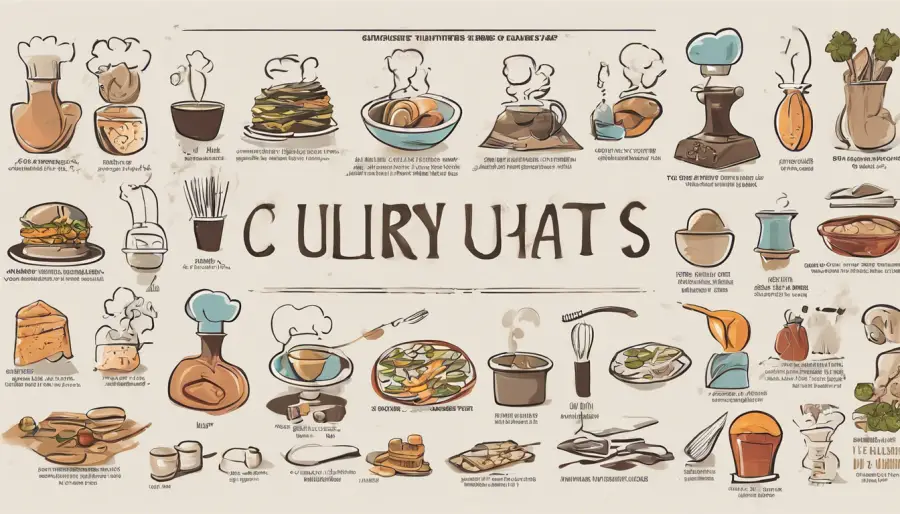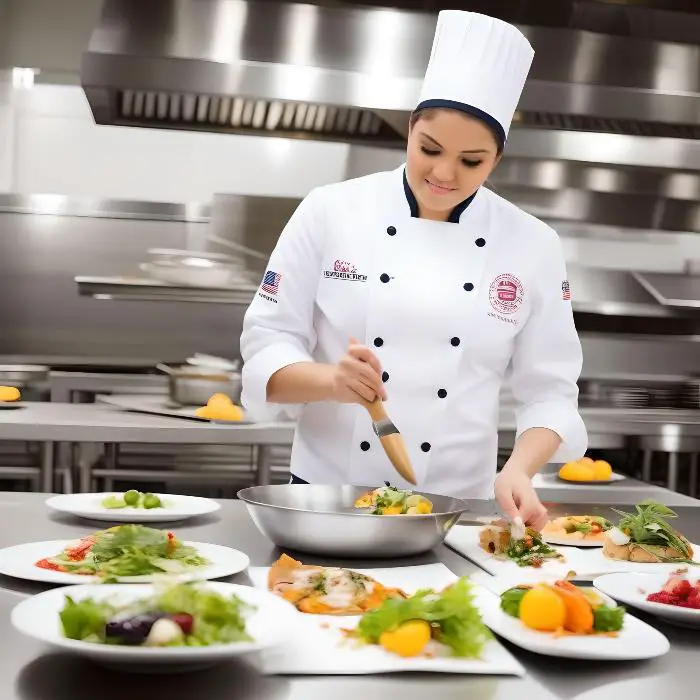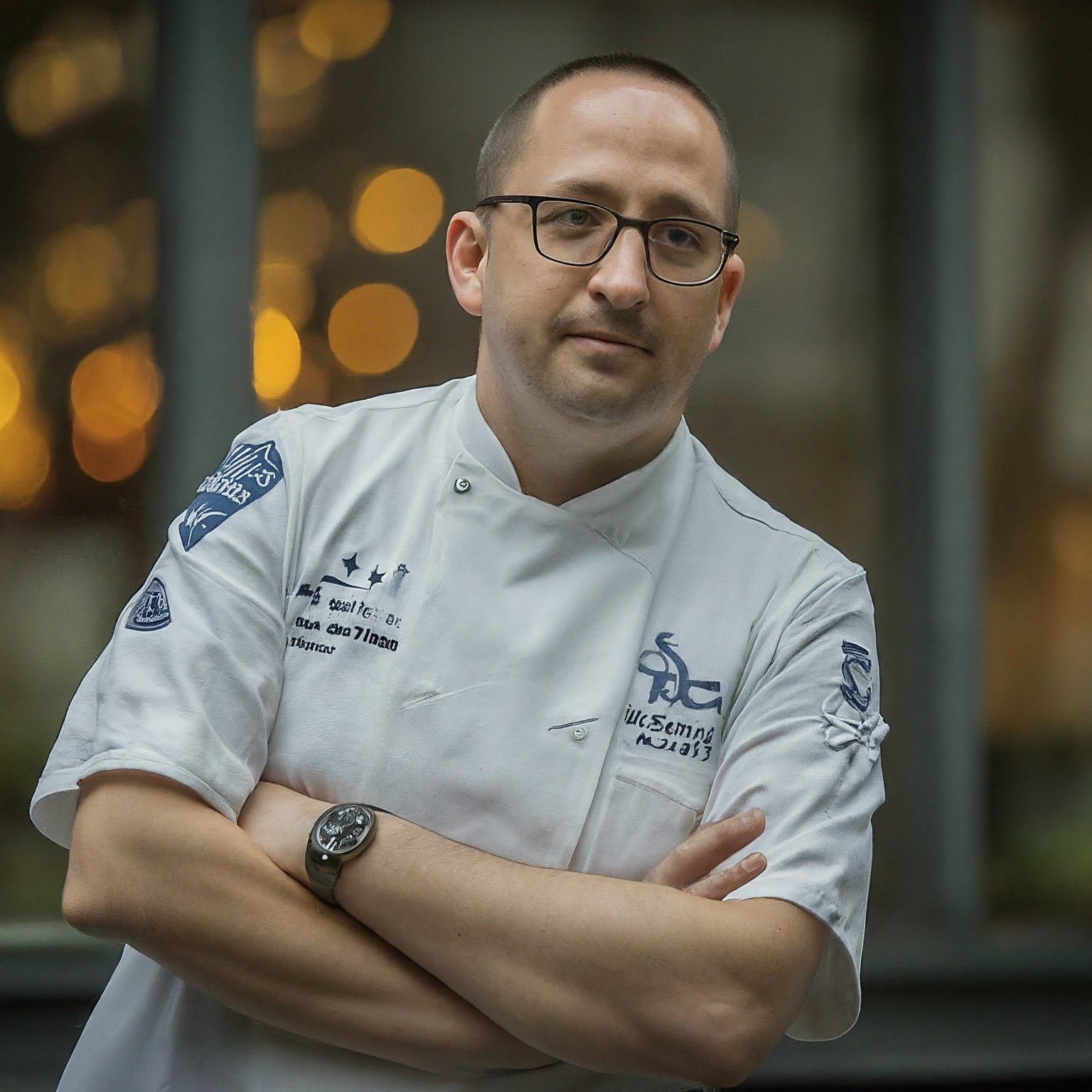
New York City
Introduction
New York City, renowned for its vibrant culinary scene, offers a plethora of opportunities for aspiring chefs to hone their skills and launch their careers.
With an array of prestigious culinary schools, the city provides top-notch education and training in the culinary arts. In this article, we will explore the top 5 culinary schools in New York City, providing a detailed comparison to help you make an informed decision.
Whether you’re looking to master classic French techniques or delve into innovative modern cuisine, these institutions offer comprehensive programs to suit your culinary aspirations.
Benefits of Attending the Top Culinary Schools in New York City
Choosing to pursue your culinary education at one of New York City’s top culinary schools comes with numerous advantages that can significantly impact your career in the culinary arts. Here are some of the key benefits:
1. World-Class Education and Training
- High-Quality Curriculum: Top culinary schools in NYC offer comprehensive and rigorous programs designed to equip students with essential skills and knowledge in the culinary arts, pastry arts, and hospitality management.
- Expert Faculty: These schools boast experienced instructors and renowned chefs who bring real-world expertise to the classroom, providing invaluable insights and mentorship.
2. State-of-the-Art Facilities
- Modern Kitchens: Students have access to advanced kitchen facilities and equipment, mirroring professional kitchens, which enhances their learning experience.
- Specialized Labs: Facilities often include specialized labs for baking, pastry, and other culinary disciplines, allowing students to practice and perfect their craft in a professional setting.
3. Hands-On Experience
- Practical Training: Culinary programs emphasize hands-on learning, enabling students to apply theoretical knowledge in practical scenarios, from food preparation to presentation.
- Externships and Internships: Many schools have strong industry connections, offering students opportunities for externships and internships at top restaurants, hotels, and catering companies. These experiences provide real-world exposure and help build professional networks.
4. Strong Industry Connections
- Networking Opportunities: Attending a top culinary school in NYC opens doors to networking opportunities with industry leaders, alumni, and peers, which can be crucial for career advancement.
- Guest Lectures and Events: Schools frequently host guest lectures, workshops, and events featuring prominent chefs and industry experts, allowing students to learn from the best and stay updated on industry trends.
5. Diverse Culinary Exposure
- Cultural Diversity: New York City is a melting pot of cultures, and its culinary schools reflect this diversity. Students are exposed to a wide range of cuisines and cooking techniques, broadening their culinary repertoire.
- Innovative Cuisine: The city’s vibrant food scene inspires culinary innovation, encouraging students to experiment and develop their unique culinary style.
6. Career Support and Guidance
- Career Services: Top culinary schools offer robust career services, including job placement assistance, resume building, and interview preparation, to help students transition smoothly into the workforce.
- Alumni Network: Graduates benefit from an extensive alumni network, providing ongoing support and opportunities for professional growth.
7. Recognition and Credibility
- Prestigious Credentials: Earning a degree or diploma from a renowned culinary school adds significant credibility to a chef’s resume, making them more competitive in the job market.
- Industry Recognition: Graduates from top culinary schools are often recognized and respected in the industry, leading to better job prospects and career advancement opportunities.
8. Personal Growth and Development
- Creative Expression: Culinary school fosters creativity, allowing students to express themselves through their cooking and develop their culinary voice.
- Discipline and Teamwork: The demanding environment of culinary school instills discipline, time management, and teamwork skills, which are essential in any professional kitchen.
9. Access to Resources
- Library and Research Materials: Students have access to extensive culinary libraries and research materials, supporting their learning and professional development.
- Online Resources: Many schools offer online resources, including tutorials, recipe databases, and culinary forums, providing additional learning tools.
10. Location Advantage
- Culinary Hub: Being in NYC, students are at the heart of one of the world’s most dynamic culinary hubs, with endless opportunities to explore different cuisines, attend food festivals, and experience the city’s diverse food culture.
- Job Opportunities: The city’s thriving restaurant scene offers abundant job opportunities for graduates, from high-end restaurants to innovative food startups.
The Top 5 Culinary Schools in New York City
1. Culinary Institute of America (CIA)
- Location: Hyde Park, NY (with a campus in NYC)
- Programs Offered: Associate and Bachelor’s degrees in Culinary Arts, Pastry & Baking Arts
- Key Features: World-renowned faculty, state-of-the-art facilities, extensive internship opportunities, strong industry connections
- Tuition: Approximately $30,000 per year
2. Institute of Culinary Education (ICE)
- Location: Brookfield Place, 225 Liberty Street, NYC
- Programs Offered: Diplomas in Culinary Arts, Pastry & Baking Arts, Hospitality Management
- Key Features: Hands-on training, externship placements, award-winning instructors, diverse course offerings
- Tuition: Approximately $34,000 for culinary programs
3. International Culinary Center (ICC)
- Location: 28 Crosby Street, NYC (formerly known as the French Culinary Institute)
- Programs Offered: Professional Culinary Arts, Pastry Arts, Italian Culinary Experience
- Key Features: Intensive programs, celebrity chef alumni, real-world experience, career services
- Tuition: Approximately $45,000 for professional programs
4. Natural Gourmet Institute (NGI)
- Location: 48 West 21st Street, NYC (now part of ICE)
- Programs Offered: Health-Supportive Culinary Arts
- Key Features: Focus on health and wellness, plant-based cooking, sustainable practices, experienced faculty
- Tuition: Approximately $32,000 for culinary programs
5. New York City College of Technology (City Tech)
- Location: 300 Jay Street, Brooklyn, NYC
- Programs Offered: Associate and Bachelor’s degrees in Hospitality Management and Culinary Arts
- Key Features: Affordable tuition, diverse student body, comprehensive curriculum, strong industry connections
- Tuition: Approximately $7,000 per year (in-state)
Comparison Chart
| School | Location | Programs Offered | Key Features | Tuition |
|---|---|---|---|---|
| Culinary Institute of America | Hyde Park, NY (NYC Campus) | Associate & Bachelor’s in Culinary Arts, Pastry & Baking Arts | Renowned faculty, state-of-the-art facilities | $30,000/year |
| Institute of Culinary Education | Brookfield Place, NYC | Diplomas in Culinary Arts, Pastry & Baking Arts, Hospitality | Hands-on training, externships, award-winning faculty | $34,000/program |
| International Culinary Center | 28 Crosby Street, NYC | Professional Culinary Arts, Pastry Arts, Italian Culinary | Intensive programs, celebrity alumni | $45,000/program |
| Natural Gourmet Institute | 48 West 21st Street, NYC | Health-Supportive Culinary Arts | Focus on health & wellness, plant-based cooking | $32,000/program |
| New York City College of Tech | 300 Jay Street, Brooklyn | Associate & Bachelor’s in Hospitality Management, Culinary Arts | Affordable tuition, diverse curriculum | $7,000/year (in-state) |
FAQ
1. What is the best culinary school in New York City?
- The best culinary school depends on your career goals and personal preferences. The Culinary Institute of America (CIA) is highly regarded for its comprehensive programs and industry connections, making it a top choice for many aspiring chefs.
2. How much does culinary school in NYC cost?
- Tuition fees vary widely among schools. For example, the Institute of Culinary Education (ICE) costs around $34,000 for its culinary programs, while New York City College of Technology offers more affordable options at approximately $7,000 per year for in-state students.
3. Do culinary schools in NYC offer financial aid?
- Yes, most culinary schools in NYC offer financial aid, scholarships, and payment plans to help students manage the cost of their education. It’s best to check with each school’s financial aid office for specific details and eligibility requirements.
4. What are the career prospects after graduating from a culinary school in NYC?
- Graduates from NYC culinary schools have excellent career prospects due to the city’s dynamic food industry. They can pursue various roles such as executive chefs, pastry chefs, food stylists, restaurant managers, and more. The strong industry connections and externship opportunities provided by these schools also enhance job placement rates.
5. Are there any part-time or online culinary programs in NYC?
- Yes, some schools offer part-time and online programs to accommodate working professionals or those with other commitments. The Institute of Culinary Education (ICE), for example, offers flexible scheduling options, including evening and weekend classes.
Conclusion
Choosing the right culinary school is a critical step toward a successful career in the culinary arts. New York City, with its prestigious institutions and vibrant food culture, offers some of the best culinary education opportunities in the world.
Whether you prefer the intensive training at the International Culinary Center or the health-focused curriculum at the Natural Gourmet Institute, there is a school to match your aspirations and career goals.
Consider your budget, program preferences, and long-term objectives when selecting a school, and you’ll be well on your way to becoming a culinary professional in one of the most exciting cities on the planet.





